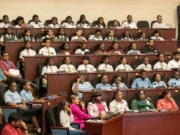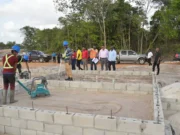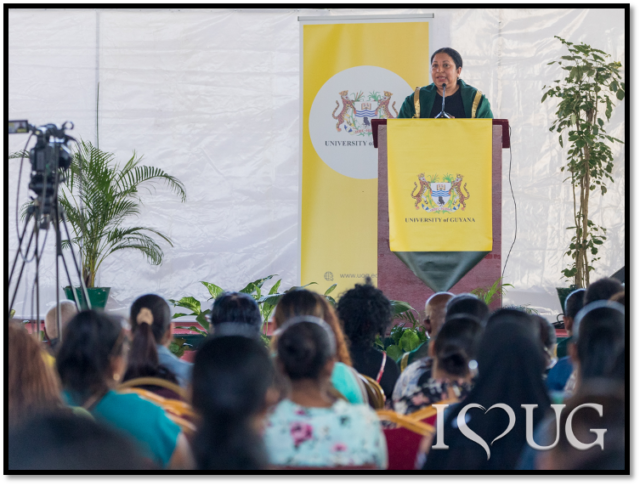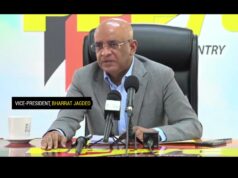The opportunities created by Guyana’s oil and gas sector can be seen as an exciting period that is full of potential. However, with the country being a newcomer to the industry, there are challenges in meeting the quota of the growing workforce demands.
Professor Paloma Mohamed-Martin, Vice-Chancellor of the University of Guyana (UG), highlighted these challenges during an episode of the Energy Perspectives podcast. Based on estimates from the International Labour Organization (ILO) and other research bodies, Guyana will need between 25,000 and 50,000 trained professionals in the next five years to fill key roles across 17 industries, including oil and gas, manufacturing, infrastructure, health, and more.
According to the Vice Chancellor, educational institutions in Guyana, including universities and technical institutes such as the Government Technical Institute (GTI), are currently producing way below the benchmark of the skilled workers required.
“You compare that with what the output is now, comparing all of the educational institutions in the country, not only universities, but, you know, GTI, the technical institutes and so on and we’re doing just under 40% of what we are supposed to be doing right now,” she said.
Professor Mohamed-Martin emphasized that the shortfall could limit the country’s ability to fully capitalize on current and future opportunities in these sectors. As such, she stressed the importance of ensuring that education is relevant to both the medium- and long-term needs of the economy.
Moreover, she disclosed that in response to this gap, UG is focusing on four key areas: scale, relevance, infrastructure, and speed.
“How quickly can we get these people ready in these particular positions?” Professor Mohamed-Martin noted. She added that by prioritizing infrastructure development and accelerating training, UG seeks to ensure students are prepared both quickly and effectively.
She explained, “So definitely for persons to be able to really take advantage of what is there and what will be coming on stream in this context, they definitely have to be able to be educated in a relevant, quick, effective way.”
The university is expanding its programmes to train more students, ensuring that the education provided is not only relevant to current industry needs but also catering for sectors expected to grow.
“So, we have to look at that, but also how we’re going to make sure that everybody who can be trained is trained to take part in what these opportunities are,” she stressed.
Also, Professor Mohamed-Martin added that a key challenge is ensuring that trained professionals stay in the country to support Guyana’s development. “So, for me, it’s a very promising moment, which I’d really love to see come to its full potential…So at the core of it, yes, education and training, very important, very, very important. Integrally important,” she said.













